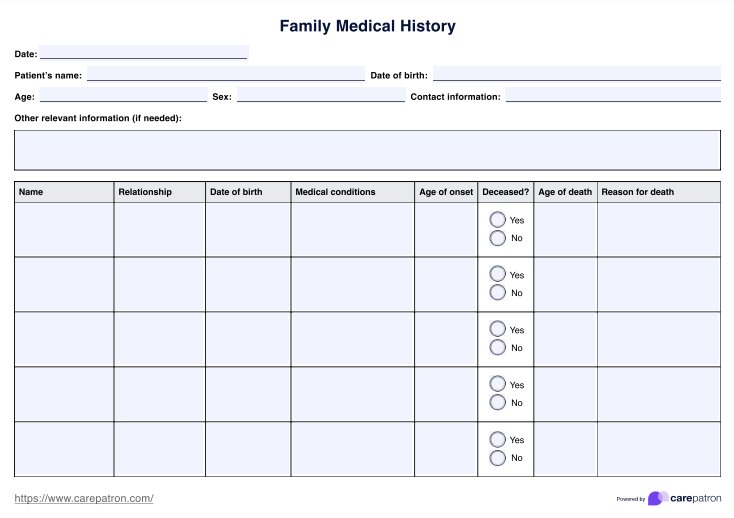Naturally, the client completes the family medical history form. Of course, the client will know the most about the health conditions of their own family; however, if another family member can contribute, they are also more than welcome to. As a result, you may give the family medical history form to the patient to complete at home.

Family Medical History Template
Track your patient's family health information with ease using this Family Medical History Template. Spot genetic risks and make informed care decisions.
Family Medical History Template Template
Commonly asked questions
A family medical history form should be updated if the client remembers anything new or if a new illness has emerged within the family that can be added. This isn't often, and it should be more of a cross-that-bridge situation to avoid taking away from other important matters during your appointments.
If your patient is adopted, kindly ask if the patient knows anything about their biological family's health. If the patient does not know, then that's okay. The same goes for patients who have missing family information. Remember that family medical history forms complement the healthcare process and help support educated health decisions. While they are essential, you should not undertake any unnecessary research to recover family information. Many medical testing options can explore dispositions to certain diseases and illnesses, which can be used instead.
EHR and practice management software
Get started for free
*No credit card required
Free
$0/usd
Unlimited clients
Telehealth
1GB of storage
Client portal text
Automated billing and online payments











